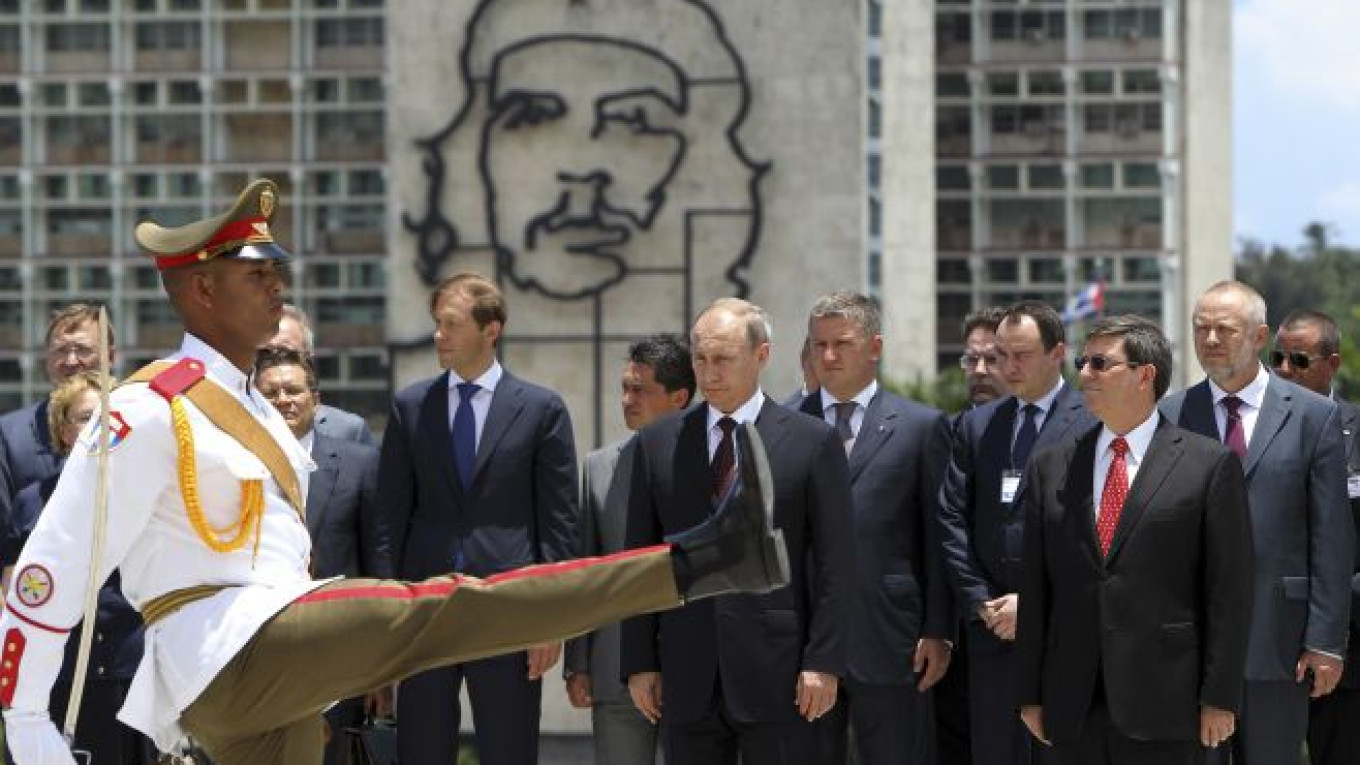Russia has quietly reached a provisional agreement with Cuba on reopening a big Soviet-era base on the Caribbean island from which it spied on the U.S., a Russian security source said Wednesday.
The proposed move comes as U.S.-Russian relations have reached a post-Cold War low in a dispute over policy towards Ukraine.
Confirming a report in the daily Kommersant newspaper which said the deal was agreed in principle during a visit to Cuba last week by President Vladimir Putin, the source said: "A framework agreement has been agreed."
At the height of the Cold War, the base at Lourdes, just south of the capital Havana, had up to 3,000 personnel and was the biggest center Moscow operated abroad for gathering intelligence from radio signals.
The base, 250 kilometers from the U.S. coast, was also used to provide communications for Russian ships.
Government and Kremlin officials did not immediately comment. The base was closed in 2001 to cut costs.
Discussions about reopening it began several years ago and intensified this year, Kommersant said, as relations with the U.S. deteriorated over the crisis in Ukraine.
Since the crisis worsened in February, the U.S. and the EU have imposed sanctions on Russia and Moscow has been trying to bolster ties with other countries, including in Asia and Latin America, to ensure Russia is not isolated.
Kommersant gave no financial details about the agreement but noted Russia had agreed before Putin's visit to forgive 90 percent of Cuba's $32 billion Soviet-era debt.
Putin, who is attending a summit of the BRICS emerging market powers in Brazil, also visited Argentina last week.
While visiting Cuba, the Russian leader pledged to help revive its former Cold War-era ally's offshore oil exploration. In Argentina, he signed a trade deal intended to increase Russia's influence in the region.
Experts See Base as Boost for Russia
Russian defense experts said reopening the base on Cuba would be a logical move for Russia, increasing its ability to gather intelligence by intercepting signals "quite significantly."
"One needs to remember that Russia's technical intelligence abilities are very weak. This will help," said Ivan Konovalov, head of the Moscow-based Center for Strategic Trends Studies.
He estimated that Moscow had received at least 50 percent of all radio-intercepted intelligence on the U.S. through Lourdes during the Cold War.
Sergei Ermakov, head of the Regional Security Section at the Russian Institute for Strategic Studies, said the Cuba move was designed to show other countries it will support them.
"After what's happened in Ukraine, with all these alliances the U.S. has developed, Russia is showing it's joining the game and that it too can lean on allies and form alliances," he said.
The base at Lourdes was created in 1964, after the Cuban missile crisis, to gather intelligence on the U.S. It monitored signals from and to submarines and ships as well as satellite communications.
The missile crisis in 1962, after Moscow proposed placing Soviet nuclear missiles in Cuba, is widely regarded as the moment in the Cold War when the U.S. and the Soviet Union came closest to a nuclear confrontation.
See also:


